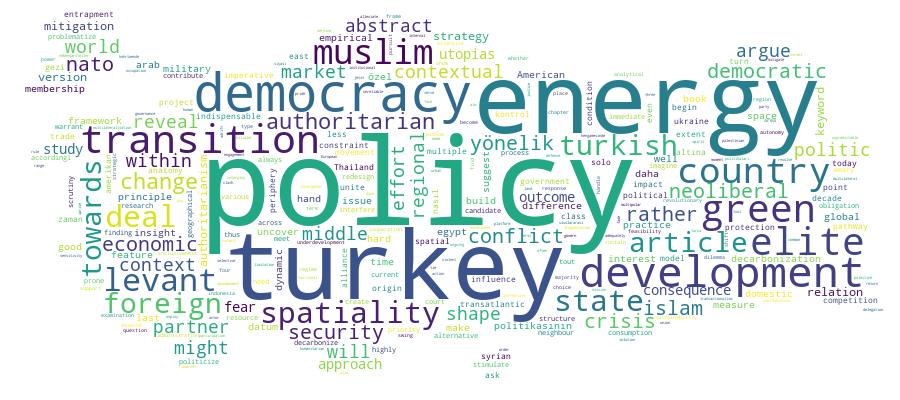Özel, Soli
Loading...

Profile URL
Name Variants
Ö., Soli
Soli Özel
Özel, S.
Soli, Ozel
Ozel,S.
S. Ozel
Soli Ozel
Ozel S.
O., Soli
Özel, SOLI
SOLI ÖZEL
ÖZEL, Soli
Soli ÖZEL
Ozel, S.
Özel, Soli
ÖZEL, SOLI
Ozel,Soli
O.,Soli
Ozel, Soli
S. Özel
Özel,S.
Soli Özel
Özel, S.
Soli, Ozel
Ozel,S.
S. Ozel
Soli Ozel
Ozel S.
O., Soli
Özel, SOLI
SOLI ÖZEL
ÖZEL, Soli
Soli ÖZEL
Ozel, S.
Özel, Soli
ÖZEL, SOLI
Ozel,Soli
O.,Soli
Ozel, Soli
S. Özel
Özel,S.
Job Title
Öğr. Gör.
Email Address
Main Affiliation
Political Science and International Relations
Status
Current Staff
Website
ORCID ID
Scopus Author ID
Turkish CoHE Profile ID
Google Scholar ID
WoS Researcher ID
Sustainable Development Goals
15
LIFE ON LAND

0
Research Products
16
PEACE, JUSTICE AND STRONG INSTITUTIONS

3
Research Products
14
LIFE BELOW WATER

3
Research Products
6
CLEAN WATER AND SANITATION

0
Research Products
3
GOOD HEALTH AND WELL-BEING

0
Research Products
17
PARTNERSHIPS FOR THE GOALS

1
Research Products
4
QUALITY EDUCATION

0
Research Products
2
ZERO HUNGER

0
Research Products
10
REDUCED INEQUALITIES

0
Research Products
7
AFFORDABLE AND CLEAN ENERGY

1
Research Products
13
CLIMATE ACTION

0
Research Products
1
NO POVERTY

0
Research Products
9
INDUSTRY, INNOVATION AND INFRASTRUCTURE

1
Research Products
12
RESPONSIBLE CONSUMPTION AND PRODUCTION

0
Research Products
8
DECENT WORK AND ECONOMIC GROWTH

1
Research Products
11
SUSTAINABLE CITIES AND COMMUNITIES

0
Research Products
5
GENDER EQUALITY

0
Research Products

Documents
20
Citations
202
h-index
7

Documents
0
Citations
0

Scholarly Output
17
Articles
11
Views / Downloads
114/1548
Supervised MSc Theses
0
Supervised PhD Theses
0
WoS Citation Count
25
Scopus Citation Count
98
WoS h-index
3
Scopus h-index
6
Patents
0
Projects
0
WoS Citations per Publication
1.47
Scopus Citations per Publication
5.76
Open Access Source
9
Supervised Theses
0
Google Analytics Visitor Traffic
| Journal | Count |
|---|---|
| Uluslararası İlişkiler | 3 |
| Internationale Politik | 1 |
| International Journal: Canada's Journal of Global Policy Analysis | 1 |
| Journal of Democracy | 1 |
| Populists and the Pandemic: How Populists Around the World Responded to Covid- 19 | 1 |
Current Page: 1 / 3
Competency Cloud


